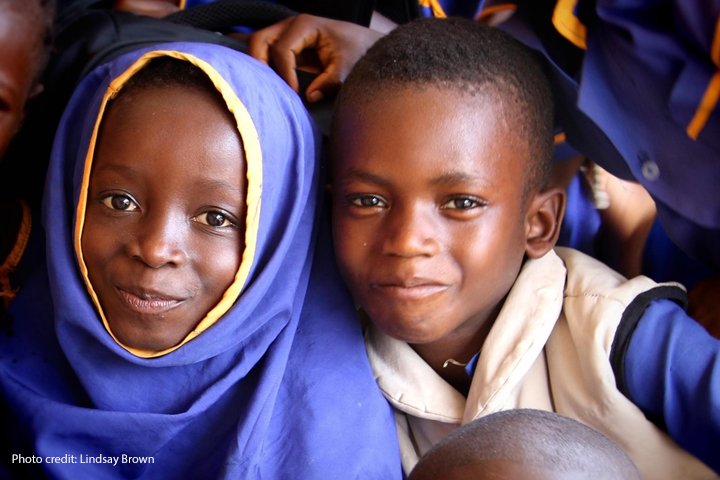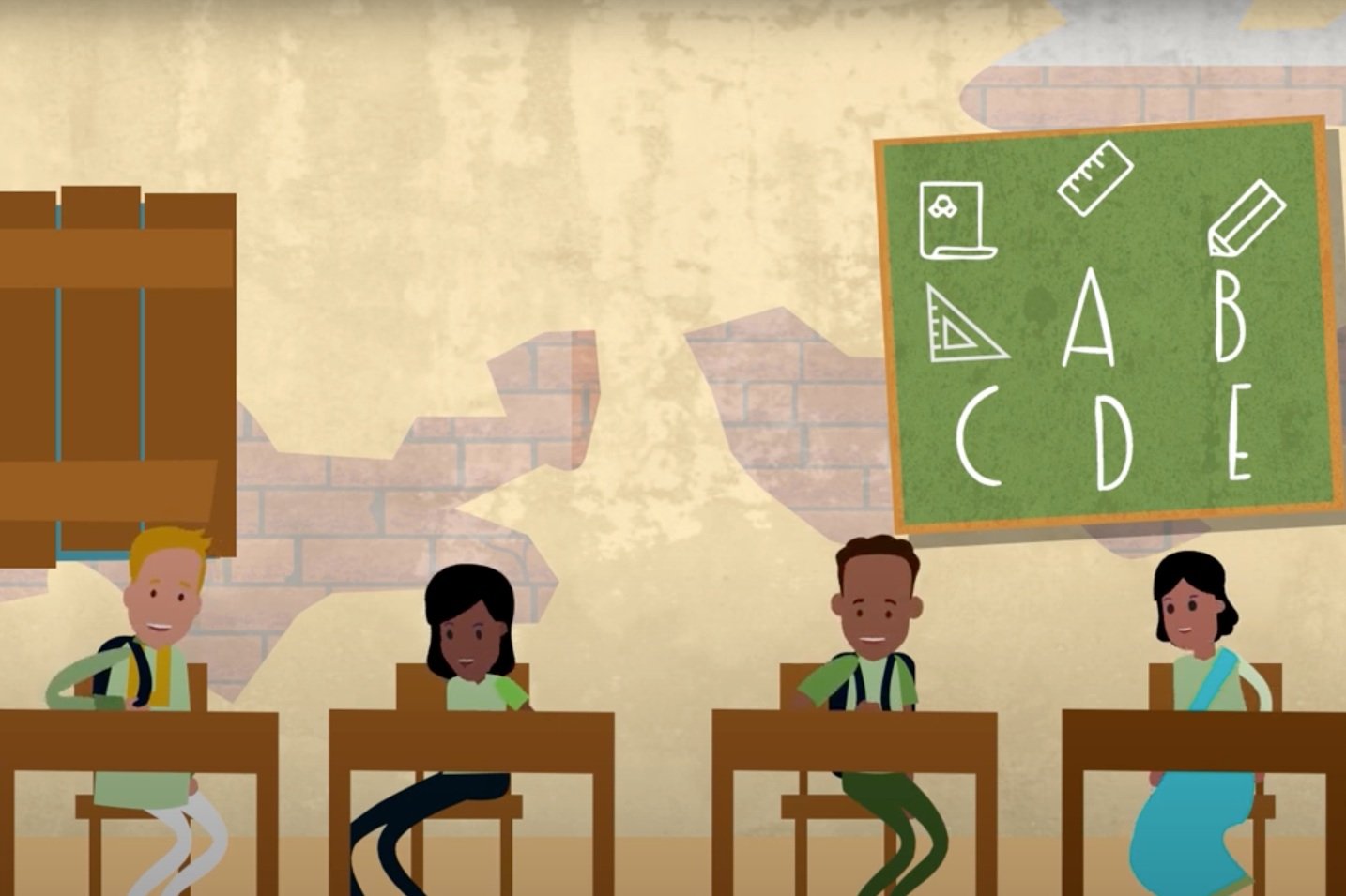Resources
From Evidence to Action for Education in Emergencies: TIES Collection of 3EA E-Cubed Research and Engagement
The purpose of this product is to summarize and showcase the achievements on communication of the evidence and lessons learned from the 3EA E-Cubed project. In sum, we generated 59 total communications products across 12 different formats targeting diverse audiences. These products are presented in 12 different formats, to cater to these diverse audiences and maximize the reach and impact, ranging from academic journals, policy briefs, and datasets to press releases, blogs, webinars, interactive online tools, and more.
How to Support School-Aged Children Living in Crisis Contexts? Evidence-based Recommendations for Stakeholders
Science is the most useful when it catalyzes change. In this tool, we provide actionable recommendations and guidance on how to best support education in emergencies, to get the evidence into the capable hands of the education stakeholders.
The Road Paved With Good Intentions: is Social and Emotional Learning (SEL) Safe and Effective for All Children Affected by Crises?
The recent earthquakes in Turkey and Syria hit an already war-torn region and populations in the Middle East. They have left lasting psychological and physical trauma for 8.8 million affected people in Northern Syria alone–a region where 4.1 million people already depend on humanitarian assistance. While immediate emergency responses are essential, once the initial crises pass, children impacted by conflict and crises still need to grow up and learn, coping with painful memories and unpredictable and often hostile environments. They deserve and need support that can help them to navigate the adversities on their own. Unfortunately, the disruptions in the aftermath of crises can exacerbate the emotional and psychological toll on children, affecting their physical and emotional well-being, learning and development over the long term.
Measuring the Dosage of Brief Social-emotional Learning (Sel) Activities in Humanitarian Settings
Key messages for researchers and practitioners:Key messages for researchers and practitioners:
When studying brief and skill-targeted social-emotional learning activities, consider calculating measures of dosage: how much (quantity), how often (repetition pattern), and for how long (duration) the activities are implemented. Examine these measures as potential predictors of program outcomes or moderators of the program impact; and use the information to determine the “optimal dosage” when scaling up.
Link these measures with teachers’ and enumerators’ reports on implementation to provide better guidance on overall implementation quality. Examine these measures as potential predictors of program outcomes or moderators of the program impact; and use the information to determine the “optimal dosage” when scaling up.
Link these measures with teachers’ and enumerators’ reports on implementation to provide better guidance on overall implementation quality."
Measuring the dosage of brief and skill-targeted social-emotional learning (SEL) activities in humanitarian settings
In humanitarian settings, social-emotional learning (SEL) programs for children are often delivered using a field-feasible approach where the programs are more easily deployable and adaptable in the field, require minimal training, and depend less on the strict sequence and structure of the program components to elicit the intended treatment effect. However, evidence is lacking on what aspects of this implementation approach enable the SEL programming to be more beneficial to children’s SEL development.
Remedial Education to Support Learning Loss Threatened by Cuts to Development Aid
This blog is written by Dr Lindsay Brown, Senior Research Scientist at NYU-Global TIES in Steinhardt School of Culture, Education, and Human Development. Lindsay primarily investigates how to support teachers in areas of conflict and crisis with a focus on flexible and scalable teacher professional development strategies. She works mainly in the Middle East and Africa.
Image credit:
Pawel Czerwinski
@pawel_czerwinski via Unsplash.
Testing the impact of a skill-targeted social and emotional learning curriculum and its variation by pre- and postmigration conflict experiences…
Refugee children face significant adversities that can threaten critical developmental processes and hamper learning outcomes. This study examines how post-migration risk factors at the community, household, and individual level experienced by primary school-aged Syrian refugee children in Lebanon (N = 448, Age M = 9.08, SD = 1.90) are associated with cognitive, emotional, and behavioral developmental processes as well as literacy and numeracy performance. We identified several risk factors, including attending a lower grade than their age-expected grade level, that uniquely predict Syrian refugee children's developmental processes and academic outcomes.
Remedial programming and skill-targeted SEL in low-income and crisis-affected contexts: Experimental evidence from Niger
Despite substantial cross-national interest in remedial programming as a way to support low-achieving students, evidence of its effectiveness is rare, particularly in low-income and/or crisis-affected contexts. In this article, we present experimental evidence of the impact of a remedial tutoring program on academic outcomes from a two-level randomized trial of two treatments in Niger: school randomization testing the impact of skill-targeted SEL activities and within-school student-level randomization testing the impact of access to remedial tutoring.
Response to Stress Questionnaire (RSQ) - Niger
The original Response to Stress Questionnaire (RSQ: Connor-Smith et al., 2000) was designed to capture the ways that individuals react to and cope with specific sources of stress, including parental depression, family conflict, and academic stressors. In order to assess local and refugee children’s stress experiences and stress responses in Nigerien public school settings, researchers adapted the child self-report version of the RSQ-Academic Problems (RSQ-AP). It includes two subscales intended to assess: (a) academic problems stress and (b) involuntary engagement response to stress.
Self-Regulation Assessment-Assessor Report (SRA-AR) - Niger
The Self-Regulation Assessment-Assessor Report (SRA-AR) is a measurement tool used to capture assessors’ perceptions of of Nigerian refugee and Nigerien children’s skills at regulating their behavior during an assessment. The SRA-AR was developed based on the Preschool Self-Regulation Assessment-Assessor Report (PSRA-AR) (Smith-Donald et al., 2007). The developers tested this measurement tool in Niger.
Disruptions to schooling: Lessons from refugee experience in Lebanon
The COVID-19 outbreak ignited a monumental education emergency, disrupting in-person learning and relying on technological schooling solutions that exacerbated many pre-existing education inequities. Lack of child care options, inconsistent access to technology, and variable quality of remote learning experiences all contributed to some students’ infrequent or complete lack of attendance to virtual schooling. As kids go back to in-person learning, schools and educators face a critical question: How do we handle students who have missed most or all of remote learning?
Image credit: IRC
Lebanon Year 2 Deidentified Data (2017-2018)
To generate the evidence needed to understand, improve and share what works to help refugee children learn and succeed in school, the International Rescue Committee (IRC) and NYU Global TIES for Children (TIES/NYU) established a strategic partnership, the Evidence for Action: Education in Emergencies (3EA) initiative. In Lebanon, this program was designed and delivered to complement the Lebanese public education system and enhance learning and retention of Syrian refugee children through remedial tutoring programs infused with climate-targeted social-emotional learning (SEL) principles and practices (Tutoring in a Healing Classrooms - HCT) and skill-targeted SEL interventions (Mindfulness activities, Brain Games, 5-Component SEL Curriculum).
Niger Year 2 Deidentified Data (2017-2018)
To generate the evidence needed to understand, improve and share what works to help refugee children learn and succeed in school, the International Rescue Committee (IRC) and NYU Global TIES for Children (TIES/NYU) established a strategic partnership, the Evidence for Action: Education in Emergencies (3EA) initiative. 3EA in Niger was designed and delivered to help strengthen the public education system in Niger and to serve refugee, IDP and host community children in the hard-hit Diffa region. It strove to achieve this through a remedial tutoring program infused with climate-targeted social-emotional learning (SEL) principles and practices (Tutoring in a Healing Classrooms), and adding skill-targeted SEL interventions (Mindfulness activities, Brain Games).
Niger Year 1 Deidentified Data (2016-2017)
To generate the evidence needed to understand, improve and share what works to help refugee children learn and succeed in school, the International Rescue Committee (IRC) and NYU Global TIES for Children (TIES/NYU) established a strategic partnership, the Evidence for Action: Education in Emergencies (3EA) initiative. 3EA in Niger was designed and delivered to help strengthen the public education system in Niger and to serve refugee, IDP and host community children in the hard-hit Diffa region. It strove to achieve this through a remedial tutoring program infused with climate-targeted social-emotional learning (SEL) principles and practices (Tutoring in a Healing Classrooms), and adding skill-targeted SEL interventions (Mindfulness activities, Brain Games).
Research Near & Far: Global TIES for Children
IHDSC met with NYU Global TIES for Children (TIES) researchers Lindsay Brown and Ha Yeon Kim to discuss their research with students in Niger and the insights and challenges that come with doing research in conflict-affected areas. This conversation was edited for clarity and length.
Teachers’ Observations of Learners’ Social and Emotional Learning: Psychometric Evidence for Program Evaluation in Education in Emergencies
Rigorous evaluation of social and emotional learning programs requires the use of measures that provide reliable and valid information on the meaningful differences in children’s social emotional skills across treatment and control groups, as well as changes over time. In contexts affected by conflict and crisis, few measures can provide the evidence required to support their use in program evaluations, which limits stakeholders’ ability to determine whether a program is working, how well it is working, and for whom.
Reimagining Education in Emergencies: Lessons from research in three crisis-affected countries RewirEd Summit virtual session
The pre-recorded video was disseminated to global key stakeholders participated in the RewirEd summit.
التعليم في حالات الطوارئ
الوصف: يركز هذا الفيديو التوضيحي على "إنشاء الأبحاث": الدروس المستفادة والنصائح العملية للباحثين وأصحاب المهنة لتوجيه المجال نحو إنشاء الأبحاث. للمزيد من المعلومات حول هذا العمل، اقرأ هنا: https://www.cambridge.org/core/journa..
L'éducation en Situations d'Urgence : Vidéo Explicative des Preuves Pour l'Action (3EA)
Cette vidéo explicative est axée sur « Construire une science pour l'action » : leçons tirées et conseils pratiques pour les chercheurs et les praticiens afin de faire avancer le domaine de l’éducation vers la construction d'une science pour l'action.




















